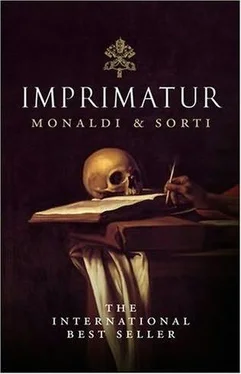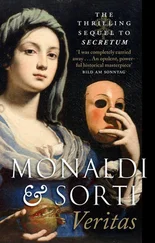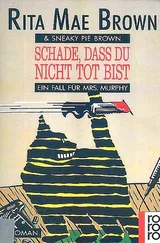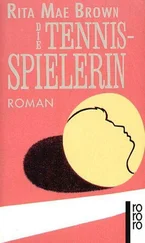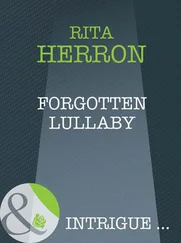Rita Monaldi - Imprimatur
Здесь есть возможность читать онлайн «Rita Monaldi - Imprimatur» весь текст электронной книги совершенно бесплатно (целиком полную версию без сокращений). В некоторых случаях можно слушать аудио, скачать через торрент в формате fb2 и присутствует краткое содержание. Жанр: Исторический детектив, на английском языке. Описание произведения, (предисловие) а так же отзывы посетителей доступны на портале библиотеки ЛибКат.
- Название:Imprimatur
- Автор:
- Жанр:
- Год:неизвестен
- ISBN:нет данных
- Рейтинг книги:5 / 5. Голосов: 1
-
Избранное:Добавить в избранное
- Отзывы:
-
Ваша оценка:
- 100
- 1
- 2
- 3
- 4
- 5
Imprimatur: краткое содержание, описание и аннотация
Предлагаем к чтению аннотацию, описание, краткое содержание или предисловие (зависит от того, что написал сам автор книги «Imprimatur»). Если вы не нашли необходимую информацию о книге — напишите в комментариях, мы постараемся отыскать её.
Imprimatur — читать онлайн бесплатно полную книгу (весь текст) целиком
Ниже представлен текст книги, разбитый по страницам. Система сохранения места последней прочитанной страницы, позволяет с удобством читать онлайн бесплатно книгу «Imprimatur», без необходимости каждый раз заново искать на чём Вы остановились. Поставьте закладку, и сможете в любой момент перейти на страницу, на которой закончили чтение.
Интервал:
Закладка:
"He managed very well," interrupted Cristofano. "In Rome, he placed himself at the service of Cardinal Rospigliosi who, like him, hailed from Pistoia, and who then became Pope. So much so that to this day Melani boasts that he had him elected Pontiff. Believe me, those Pistoiesi are the world's greatest braggarts."
"Perhaps," replied Devize prudently. "But to make a pope, one must needs manoeuvre well in conclave. Now, during that conclave, Rospigliosi was indeed assisted by Atto Melani. And it is well known that not only has Melani always been on familiar terms with those cardinals who are most in the public eye, but also with the most powerful French ministers."
"He is an intriguer, to be feared and never trusted," cut in Stilone Priaso, conclusively.
I was utterly stupefied. Was the individual of whom the three lodgers were speaking really the same man with whom I had conversed only last night, a few paces from where they now sat? He had introduced himself to me as a musician, and now he was revealed to me as a secret agent, involved in turbid palace manoeuvres, and even in scandals. It seemed almost as though I had known two different persons. Surely, if what the abbot himself had told me was true (namely that he still enjoyed the favours of many princes) he must have recovered his reputation. But after hearing the conversation between Stilone Priaso, Cristofano and Devize, who would not be suspicious of his word?
"Wherever there is a political question of any importance, Abbot Melani is always to be found," resumed the French musician, laying stress on the word "Abbot". "Perhaps it will be discovered only after the event that he too was involved. He always manages to worm his way in everywhere. Melani was among Mazarin's assistants during the negotiations with the Spaniards at the Isle of Pheasants, when the Peace of the Pyrenees was concluded. They also sent him to Germany, to convince the Elector of Bavaria to stand as a candidate for the Imperial Throne. Now that his age no longer permits him to travel as he used to, he endeavours to make himself useful by sending the King reports and aide-memoires concerning the court of Rome, which he knows well and where he still has many friends. In more than one affair of state, it is said that voices have been heard in Paris anxiously requesting the suggestions of Abbot Melani."
"Does the Most Christian King grant him audiences?" inquired Stilone Priaso."That is another mystery. A personage of such dubious reputation should not even be admitted to court, yet he enjoys direct relations with several ministers of the Crown. And there are those who swear that they have seen him slipping out from the King's apartments at the most unseemly hours. His Majesty is said to have summoned him for interviews most urgently and in the utmost secrecy."
So it was true that Abbot Melani could obtain audiences with His Majesty the King of France. At least on that point he had not lied to me.
"And his brothers?" asked Cristofano, as I approached with a bowl of hot soup.
"They always move in a pack, like wolves," commented Devize with a grimace of disapproval. "Hardly had Atto settled in Rome, after the election of Rospigliosi, than he was joined by his two brothers, one of whom immediately became maestro di cappella at Santa Maria Maggiore. In their own city of Pistoia, they have laid their hands on benefices and the collection of excise duties and are justifiably held in execration by many citizens."
There could be no further doubt. I had met not with an abbot, but a deceitful sodomite, skilled in gaining the confidence of trusting sovereigns, and this too thanks to the rascally connivance of his brothers. My promise to assist him had been an unpardonable error.
"It is time for me to check on Master Pellegrino," announced Cristofano, after administering the oil of sulphur to his two boon companions.
Only then did we realise that Pompeo Dulcibeni had returned downstairs, who knows how long since: he had remained in complete silence, seated in an alcove of the other room, pouring himself liquor from a flask of aqua vitae which my master was wont to keep on one of his tables, surrounded by small drinking glasses. He must, I thought, surely have overheard the conversation about Atto Melani.
So I followed the trio. Dulcibeni, however, did not move. On the first floor, we encountered Padre Robleda. The Jesuit had restrained himself, controlling his mad fear of the infection, and had remained for a moment on the threshold of his chamber, wiping the perspiration which glued his grizzling curls to his low forehead and struggling to maintain his dignity. Now he had propelled himself just outside the chamber, and there he stood rigidly close to the wall, yet without touching it, erect and comical. He stayed there, looking at us, in the vague and anxious hope of gleaning some good news from the physician, with all his great body weighing down on his toes and his chest exaggeratedly thrust backwards, so that his black profile formed a great curve.
Not that he was really fat, apart from the rather rotund forms of his brown face and his neck. He was tall, and the moderate prominence of his belly did not spoil his appearance but endowed him with an air of mature wisdom. However, his bizarre pose compelled the Jesuit to cast his eyes downwards, with his eyelids slightly lowered, if he wished to face whoever he would speak to; and this, together with his long and widely spaced eyebrows and the dark rings around his eyes, conferred upon him an air of extreme nonchalance. Much good did it do him, for scarcely had Cristofano caught sight of him than he invited him peremptorily to accompany us, as Pellegrino might be urgently in need of a priest. Robleda would have liked to make some objection, but as none came to mind, he resigned himself to following behind us.
Having climbed to the upper floor to look at what we feared might already be my master's corpse, we realised that he was still alive. And he was still breathing, hoarsely but regularly. The two spots had neither diminished nor grown: the diagnosis remained in the balance between the plague and the petechial fever. Cristofano proceeded to clean him all over and to refresh him with damp towels, after wiping away his sweat.
I then reminded the Jesuit, who had remained prudently outside the doorway that, as matters stood, the sacrament of Extreme Unction should be administered to Pellegrino. The edict which laid down that holy images were to be present in hostelries also-I made it clear-required that if anyone were to fall ill in hostelries or taverns, they were to be administered the Oil for the Sick.
Father Robleda gave a start, but could not refuse his services.
He then ordered me to bring him olive oil, as indicated specifically by Saint James, so that he could bless it for the ceremony; and also a little rod. A few minutes later, the Jesuit was by Master Pellegrino's bedhead to administer Extreme Unction.
The thing was over unbelievably soon: he dipped the rod into the oil and, making sure that he remained as distant as possible from the sick man, he anointed one of his ears, rapidly gabbling only the brief formula Indulgeat tibi Deus quidquidpeccasti per sensus, which was very different from the familiar long form.
"The University of Louvain," said he, turning to his perplexed audience in self-justification, "ruled in 1588 that, in the event of the plague, it should be licit for the priest to impart the Holy Chrism with a rod rather than with his thumb. And instead of anointing the mouth, nostrils, eyes, ears, hands and feet, each time pronouncing the canonical formula Per istassanctas unctiones, etsuampiissimam misericordiam indulgeat tibi Deus quidquidper visum, auditum, odoratum, gustum, tactum deliquisti, many theologians there held that the Sacrament was valid with a single unction effected rapidly on one of the sensory organs, pronouncing the brief universal formula which you have just heard."
Читать дальшеИнтервал:
Закладка:
Похожие книги на «Imprimatur»
Представляем Вашему вниманию похожие книги на «Imprimatur» списком для выбора. Мы отобрали схожую по названию и смыслу литературу в надежде предоставить читателям больше вариантов отыскать новые, интересные, ещё непрочитанные произведения.
Обсуждение, отзывы о книге «Imprimatur» и просто собственные мнения читателей. Оставьте ваши комментарии, напишите, что Вы думаете о произведении, его смысле или главных героях. Укажите что конкретно понравилось, а что нет, и почему Вы так считаете.
